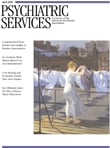Textbook of Men's Mental Health
This textbook is divided into three main sections. The first section is concerned with normal male development and comprises three chapters covering childhood, adolescence, and adulthood. The next section deals with assessment and treatment of several psychiatric disorders, including chapters on anxiety, depression, substance abuse, conduct disorder, antisocial personality, impulse control disorders, posttraumatic stress disorder, and sexual health. The final section encompasses several sociocultural issues for men. This section has seven chapters that address fathering, marriage, divorce, body image, muscularity, aggression, domestic abuse, culture, ethnicity, race, homosexuality, and the stigma of and barriers to treatment.
This book is well edited with a clear and easy-to-read style that is consistent and uniform throughout all the chapters. Each chapter begins with a believable case vignette, and the chapter content follows. The chapters end with a section of bulleted key points that reduces the chapter's content down to two to four major important take-away messages. Most of the chapters also end with a box of highlighted practice guidelines, which have three to five bulleted clinical points for therapists to be particularly mindful of when treating a male client with this particular illness or issue. Valuable tables are contained within many of the chapters. One example is the chapter on adolescence by Craig Erickson and R. Andrew Chambers, which presents a conceptual diagram of the developmental trajectories of gender-associated traits and psychopathologies emerging through this period. It sees males as being prone to cognitive-motor-motivational disorders, such as impulse control, substance abuse, attention-deficit hyperactivity disorder, tic disorders, antisocial personality, and suicide completion. In contrast, females are more prone to "cognitive-social-emotional disorders," such as anxiety, depression, borderline personality, and suicide gestures.
The chapter on men, marriage, and divorce by Scott Haltzman, Ned Holstein, and Sherry Moss very sensitively covers male-specific issues in marital therapy and for divorced men. The consequences of divorce can be particularly devastating for men, with multiple losses—of spouse, primary guardianship of their children, the family home, financial stability, and often mutual friends. The chapter on the mental health of gay men by Michael King is exceptional. It gives a concise overview of the myriad of historical and current prejudices gays face in society and then addresses their mental health issues with a compassionate approach. King states that while "health service professionals are improving in their attitudes … many still need greater awareness of the gay lifestyle and its association with health."
Editors Jon Grant and Marc Potenza have conducted research and published jointly on impulse control disorders. Their considerable talents in this field are matched both by their editing skills and their selection of noted experts to contribute to this text. Many of the authors of these chapters are leaders in their respected fields. All of the authors have worked to produce a significant contribution to scientific literature. This textbook is mandatory reading for any therapist, regardless of discipline, who treats male patients. I plan on keeping my copy near my desk for easy reference.



